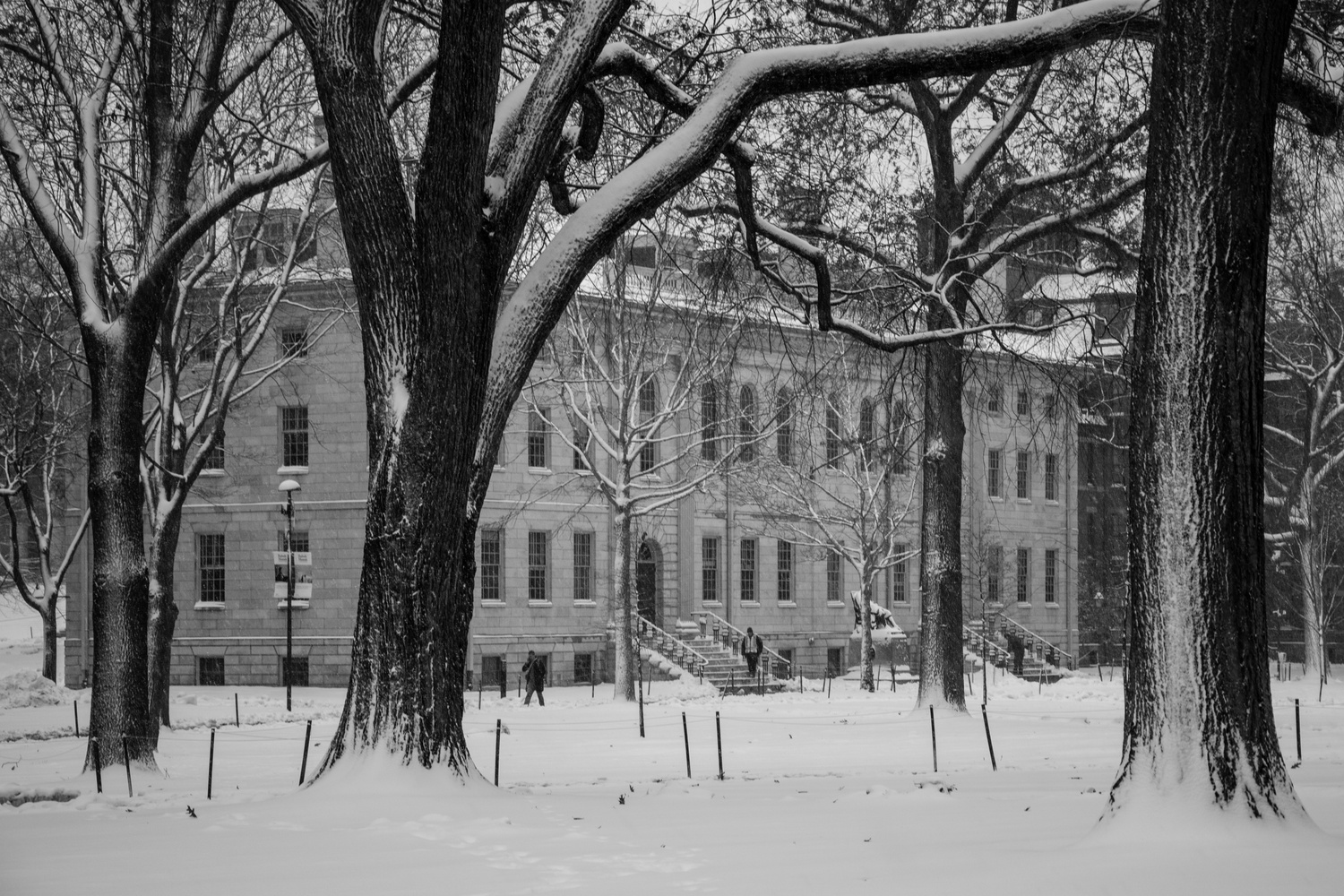
News
Nearly 200 Harvard Affiliates Rally on Widener Steps To Protest Arrest of Columbia Student

News
CPS Will Increase Staffing At Schools Receiving Kennedy-Longfellow Students

News
‘Feels Like Christmas’: Freshmen Revel in Annual Housing Day Festivities

News
Susan Wolf Delivers 2025 Mala Soloman Kamm Lecture in Ethics

News
Harvard Law School Students Pass Referendum Urging University To Divest From Israel
Fun and Funds: Datamatch Participants Find Love, Despite Budget Cut

Updated February 19, 2025, at 3:09 p.m.
When Christian Serrano ’28 entered the 2025 Datamatch cycle, the student-run matchmaking platform paired him with his best friend.
“So we literally just got free donuts,” he said, adding that he had a friendship date planned for later that day with another match.
“I feel like everyone should do it, because you might get your best friend,” Serrano said.
Founded by Harvard undergraduates in 1994, Datamatch is a student organization that uses a “top secret” algorithm to match students based on their responses to a survey.
Last Datamatch round, participating students’ semi-anonymized personal information was leaked on a website. The website — created by Sungjoo Yoon ’27 — uploaded students’ initials next to their Rice Purity Scores to warn his peers to “not keep putting your info into random apps.”
But leading up to and following this year’s survey release, many students were not concerned with their data privacy. Roughly 2,700 Harvard undergraduates — more than 1,400 fewer students than last year — participated in this matchmaking cycle, according to Datamatch’s website.
This year, the humorous multiple-choice survey, which is revised annually, featured questions such as “what’s your go-to excuse for skipping class?”
“The survey is meant to be a pretty fun thing. The questions aren’t necessarily optimized towards finding the best match for a particular person,” Howard R. Huang ’26, Datamatch co-president — or “Supreme Cupid” — said on Feb. 4, prior to this year’s survey launch.
According to Huang, “half of the algorithm” is accounting for reported “blacklists,” such as avoiding intra-House matches or finding matches within specific age ranges. After considering these preferences, “then we get into the actual survey, which maybe means something,” Huang said.
“I think people generally say that we have okay results, but you do hear a lot of complaining on Sidechat,” he added.
Matches were released by the organization on Feb. 14. Participants could schedule a date at a Harvard Square eatery, such as Playa Bowls or Berryline, with Datamatch picking up the tab.
To fund the dates, the Harvard Undergraduate Association awarded Datamatch a grant worth $4,000 at its Feb. 10 meeting, a $2,000 decrease from the previous year’s allotment.
In response to a request for comment, Datamatch spokesperson Jackson Moody ’26 wrote that “Datamatch at Harvard partners with local businesses to receive bulk discounts, and subsidizes dates largely through HUA funding. As a result, decreased funding from the HUA will impact the number of dates that Datamatch is able to support going forward.”
Free food and a fun story were driving motivators for students to join Datamatch, students said in interviews with The Crimson.
“I thought it was fun. I never really took it seriously,” Kate Y. Lee ’28 said. Lee added that she was paired with her roommate, “so we’re going out to go get free food, which is awesome.”
But not all students were as lucky.
Emerson A. Utgaard ’27 said that getting matches was “very exciting,” after not participating in Datamatch last year. But, three days after receiving her matches, Utgaard had yet to go on any dates.
“After matching all of them, only two of them matched me back and they didn’t respond to my messages, so I sadly did not get the free food,” Utgaard said.
Though Sasha Khalo ’28 had matched with “a couple of people,” neither party texted each other to schedule a date.
“But I still want a Playa Bowl, so I’m going to probably text her,” she added.
Erica S. Ho ’27 said that while she had participated in the matchmaking service last year, she did not submit a survey this year. Still, when she opened the site on Feb. 17, she discovered that she had received matches.
“I haven’t done anything with them. I don’t particularly plan on it, just because I’m pretty busy,” she said. “I feel bad for the people who are taking Datamatch more seriously and are matching with people who are inactive.”
In response to a request for comment, Moody wrote that “it is not possible for previously registered users to have received matches this year without creating a new account. That being said, we do our best to match as many registered users as possible, so users who partially completed their surveys and/or profiles may still have received matches.”
Despite a lack of matches, students like Khalo said they enjoyed completing the Datamatch survey.
“The survey was really, really fun,” she said. “Very creative.”
“Keep up with great questions,” Khalo added.
—Staff writer Hiral M. Chavre can be reached at hiral.chavre@thecrimson.com. Follow her on X @h_chavre.
—Staff writer Darcy G Lin can be reached at darcy.lin@thecrimson.com.
Want to keep up with breaking news? Subscribe to our email newsletter.
